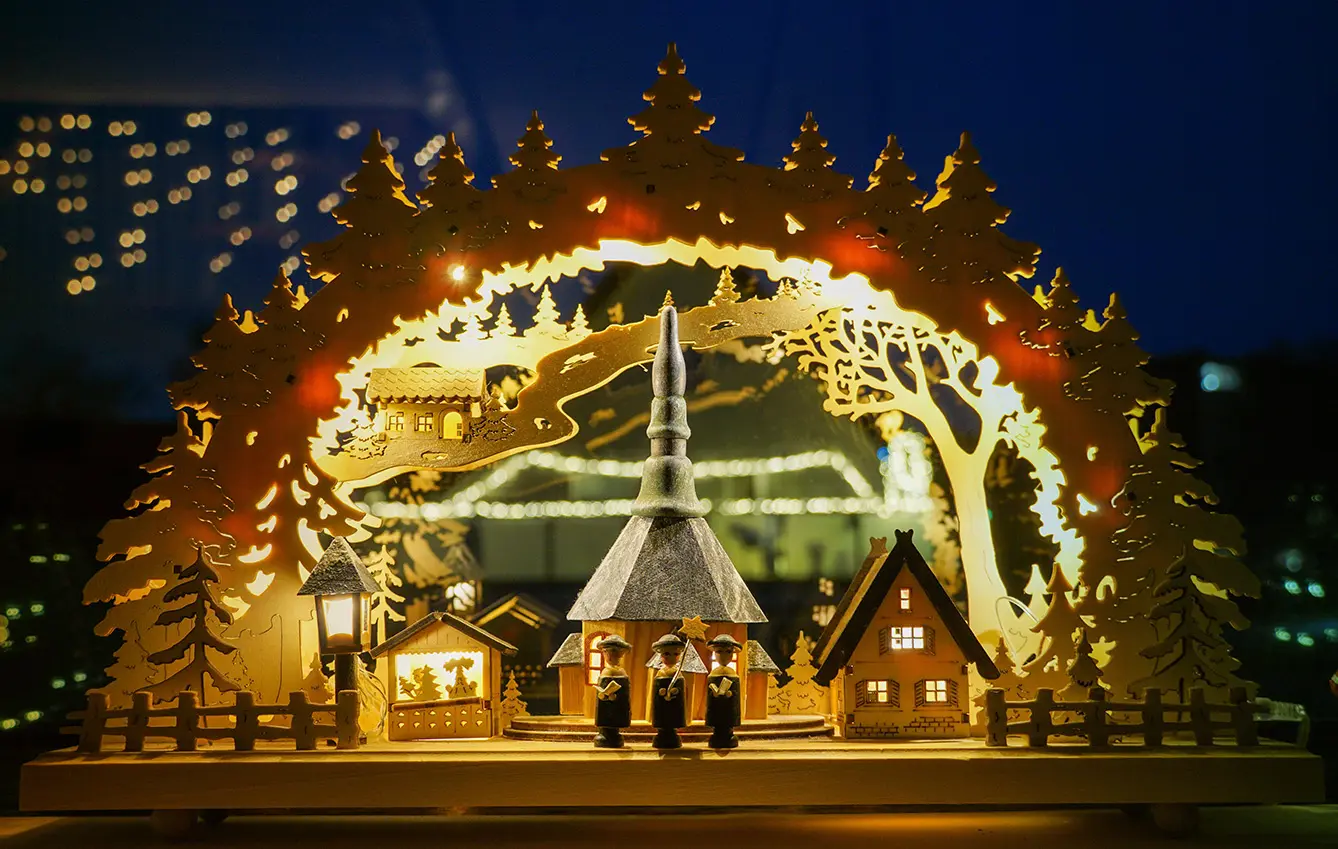Christmas songs about snow and cold winter seem to have long won the battle for popularity among the masses. The traditional carols, so songs treating about the Christian tradition of the holidays, seem to be forgotten or known only by those who follow the Christian religion. You might be surprised, therefore, to learn that Christmas carols are still holding on strong in one Central European country, being widely sung and performed over Christmas time. Their variety and forms became vessels for folk culture and Polish identity. How? Listen.
Never fading popularity
If there is one thing that can be said about Polish Christmas carols, it is that – whether you are a Christian or not – you will know the most popular ones. And if you are a believer and attend the Church, you will notice that over Christmas time, not only are the temples fuller, but also they are much, much… louder. Suddenly, the faithful, who are usually rather reluctant singers, enjoy a little sing-along.
There are also full-blown concerts held that gather hundreds of people who want to (and pay to) listen to contemporary arrangements of their most beloved Christmas carol. It is probably worth mentioning that these arrangements still very much resemble the original tunes – as if the artists themselves did not see it fit to move too far away from the original versions). So why, you may ask, are Christmas carols that important to Poles?
Impressive treasury of Polish Christmas carols
Christmas carols became embedded in Polish culture over the centuries. Their sole number can testify to the important position they held in the consciousness of the Polish people. There are approximately 200 preserved carols and 400 pastorałki (carols focused on the folk angle of the nativity), giving us an impressive number of nearly 600 known compositions.
It is claimed that no other country in the world has a treasury of carols that could compare to the Polish one. But is the fact that carols are cutely rhymed songs filled with nostalgic dreams of prosperity and happiness enough to grant any genre such a strong position in a country’s culture? Rather not.
The Polish Christmas carols are unique because, apart from the mystery of the Christian faith, they often speak of the country’s fate. This tendency was particularly strong during the 123 years of partitions when the mystery of the birth of Christ became an opportunity to ask for a new beginning for the lost country.
Adam Mickiewicz (the author of the Polish epic poem Pan Tadeusz) wrote, “carols are the ark of the covenant between our old, glorious past and today’s sad reality.” The most famous Polish carol, Bóg się rodzi [God is born], is the finest example of this patriotic longing encapsulated within the short form of a Christmas carol, with lyrics written by an 18-century poet Franciszek Karpiński.
In it, people ask the newborn Christ to “bless our dear country (…) support it in struggles, and provide strength”. Another one, for example, has a verse that says: “Poles came and asked the Lord/ would their country be theirs to hold?/ The Baby smiled/and hope survived.” They held a similar role during the Second World War and Soviet Occupation. One of the widely loved Polish comedies of the latter period, “Miś,” directed by the master of the genre – Stanisław Bareja – ends with a Christmas carol that was to carry the hidden message of hope of retrieving independence from the Soviet regime. And the censors allowed it to be aired, perhaps dismissing the power of the lyrics disguised in the common folk form.
Vessel for Polish musical forms
When it comes to the musical forms, Polish Christmas carols were written to represent all native music forms and thus preserve them. There are the rather sad kujawiaki (kujawiak is a folk melody for slow dance), lively mazurkas, a plethora of lullabies, old folk melodies, and gracious polonaises (Polish national dance), so adored by the finest Polish piano genius – Chopin. In fact, Chopin wrote his own notation for a famous lullaby carol – Lulajże, Jezuniu [Sleep now, baby Jesus], in his Scherzo b-moll op. 20, composed soon after the fall of the 1830-1831 November uprising.
The fact that such a great composer would devote his time and work to notating an arrangement for a “common” church song is yet another piece of evidence that Christmas carols occupy a special place in what can be defined as the Polish soul. They are also still growing in number as contemporary artists continue composing the most touching carols, some eagerly sung by the people.
If you happen to be in Poland over Christmas, pay close attention to what people sing and how they sing it. Polish cultural sensitivity found its remarkable expression in these simple musical forms. You are bound to understand once you hear it.







